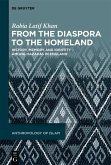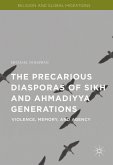After the fall of the first Taliban regime in 2001, Hazaras gained greater visibility in Afghanistan. This shift in the community's circumstances, predicated on educational success and an active civil society significantly impacted self-perceptions within the community, moving away from marginality and towards continued success. Thus shifting internal perceptions of Hazara identity and what it means to be Hazara in the present. The internalised negativity associated with being Hazara in the past has diminished, and there is now growing community confidence, political mobilisation and ethnic consciousness among transnational Hazaras.
As a result, Hazara identity has shifted from being perceived as a marginalised identity to an identity which is now positively affirmed and proclaimed within the community, globally. This shift within the community, which has tremendously impacted Hazara ethnic consciousness, is the focus of this book.
Dieser Download kann aus rechtlichen Gründen nur mit Rechnungsadresse in A, B, BG, CY, CZ, D, DK, EW, E, FIN, F, GR, HR, H, IRL, I, LT, L, LR, M, NL, PL, P, R, S, SLO, SK ausgeliefert werden.









